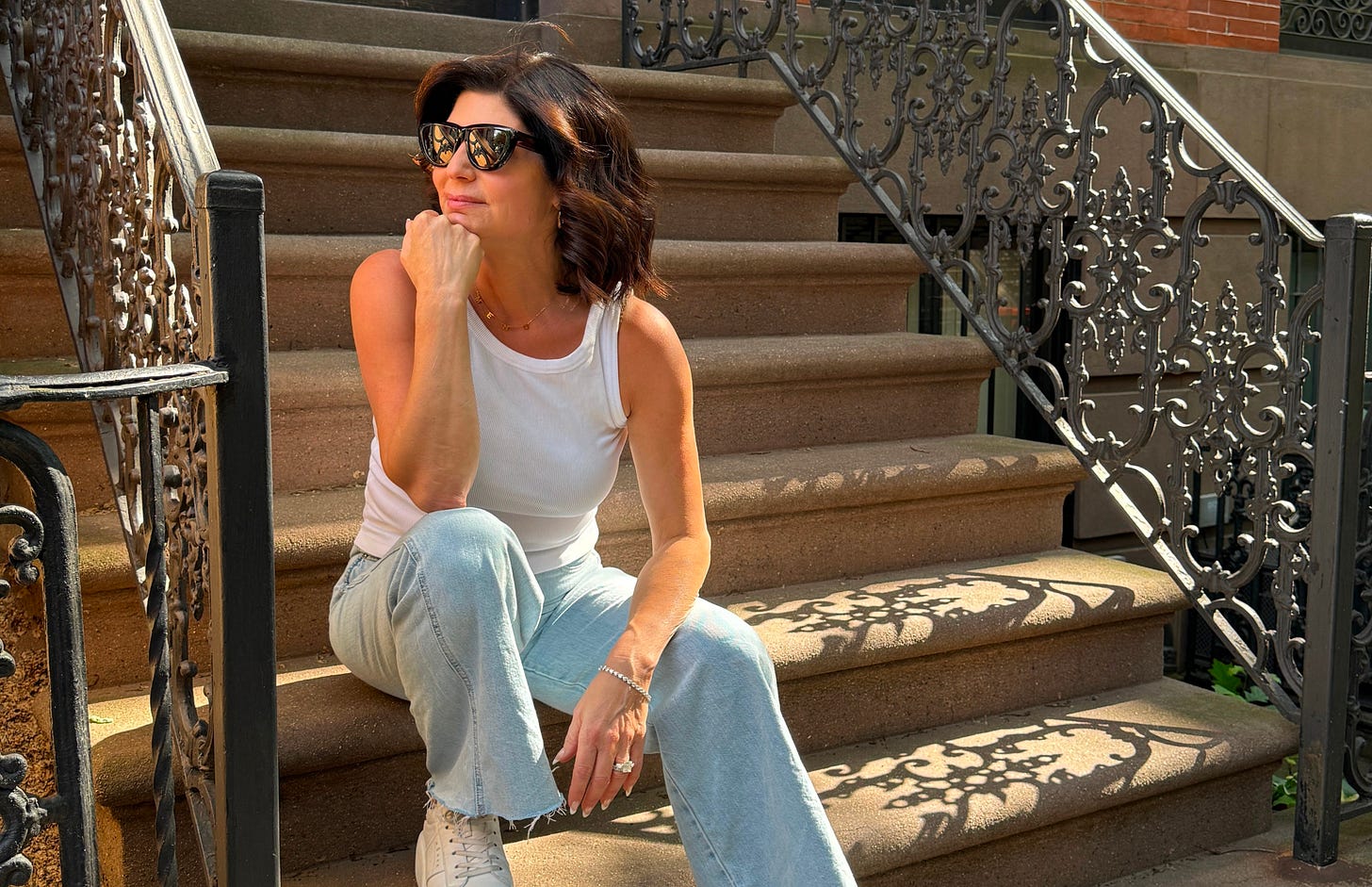When I started working in television, the pressure to stay young wasn’t subtle. It was spoken and unspoken. It was embedded in contract negotiations, casting decisions, and quiet conversations behind closed doors.
I learned early that aging was something to avoid, or at least disguise.
If you wanted to work longer, you had to look younger. I absorbed that message for years, both professionally and personally.
So I understand why the word old can feel jarring. I used to avoid it completely. I didn’t say it about myself, and I didn’t say it about other women.
I equated it with being replaced, being irrelevant, and being less visible.
But now, after living through midlife and writing How to Menopause, my relationship to that word has changed. I don’t hear it as an insult anymore. I hear it as a marker of time, experience, and perspective. I hear it with softness, not fear.
A few days ago, I shared a video from @habibti_hemaidan where she encouraged younger women to follow old women. Not to pity them. To learn from them. That video struck a chord, and the comment section quickly filled with mixed reactions. Some women loved it and felt empowered. Others felt uncomfortable with the language and wished she had used a different word.
I read all of it. And I think that conversation matters.
It’s not just about the word old. It’s about what we’ve been taught to believe it means. For so many women, aging has always been framed as decline. We didn’t grow up seeing women age out loud.
There were no visible examples of what it meant to be older and still confident, still growing, still full of life.
We didn’t see complexity. We saw caricatures. Women were either erased, mocked, or put on pedestals that didn’t feel real.
So when someone uses the word old without shame, it can feel disorienting. But that doesn’t mean it’s wrong. It means we’re bumping up against the conditioning we’ve all lived with.
The truth is, I like being followed by younger women. It reminds me how much I needed that when I was their age. I didn’t have access to women who were aging in public and telling the truth about it.
There was no social media. There was no one saying, “This stage of life is rich with change, and you can handle it.” All I saw were warnings. All I heard was silence. Or worse, denial.
That’s why I use the word old now. Because I want to take some of the fear out of it. I want to treat it like a stage of life, not a punchline.
You don’t have to love the word. But we should stop giving it so much negative weight.
For me, being old means I’ve lived, learned, and lasted. It means I’ve grown into someone I needed to see when I was younger.
And it means I’ve stopped trying to convince anyone that youth is my most valuable trait.
If the word old makes you cringe, ask yourself who taught you to feel that way. Then consider what it might mean to rewrite that story on your own terms.
Aging is not something to survive quietly. It’s something to grow into with depth, agency, and power. And that’s exactly what I plan to keep doing.




